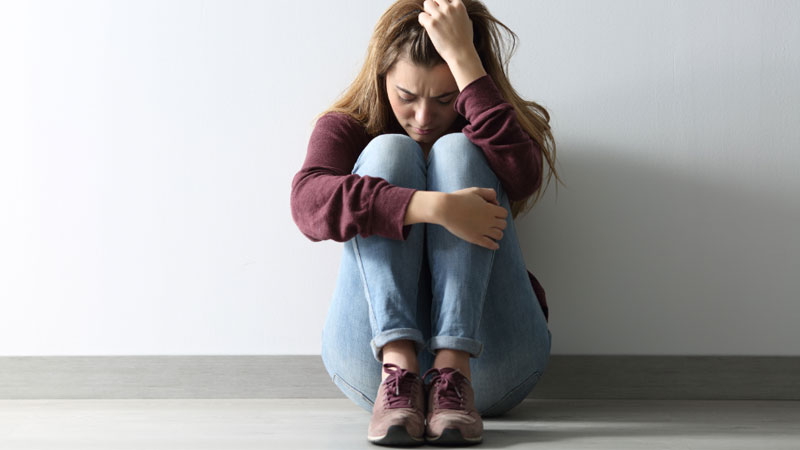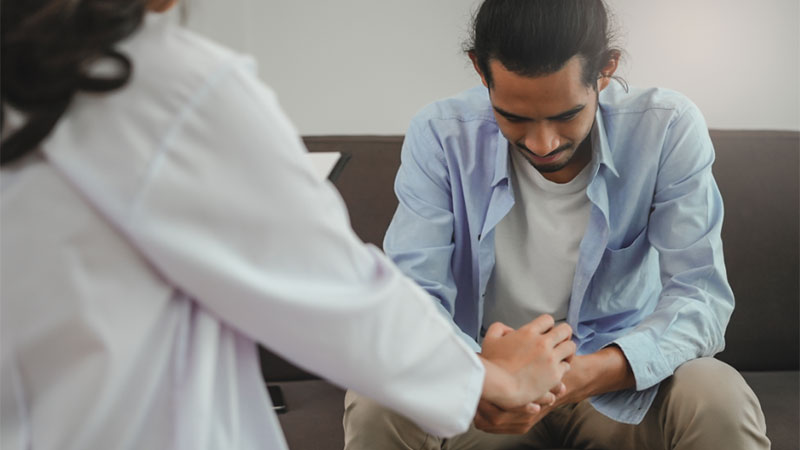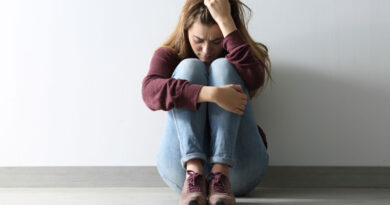How To Spot Signs Of Depression In A Loved One
While mental health awareness month has concluded, it’s still necessary to recognize the importance of maintaining mental health all year round. Open discussions, learning avenues, and awareness campaigns surrounding mental health, help people gain not only knowledge regarding its illnesses. It also helps society develop the compassion needed to encourage others to fight the stigma and seek professional aid.

Importance Of Seeking Professional Help
Untreated depression increases the chance for risky behaviors and unhealthy coping strategies to manage the symptoms. Consequently, this can meddle with relationships, cause problems at school, and make other similar issues, worsening the complication.
While the world has been slowly bouncing back from financial crises and pandemics, some people aren’t able to get over from what have occurred. This isn’t to be ashamed of and is completely normal as healing can be slow and nonlinear.
Considering this: it’s essential to check in with yourself and your loved ones. Mental illnesses are real and are serious brain-based ailments that affect the way you process emotions, think, and behave. Unlike the body, your mood and cognition don’t take physical shape, making them challenging to observe.
If you’re experiencing extremely low mood that’s already affecting your work, studies, and social functioning, speak to a psychotherapist. For instance, Alvarado Parkway Institute and other similar mental health clinics have reputable healthcare providers who can assist and help you.
While clinical depression is a highly complex condition to manage and treat, working with a psychologist can help you manage your symptoms and create a treatment plan that works for you. Similar to physical diseases, mental disorders need medical attention and treatment so the symptoms can subside and the patient can become better.
Ways To Identify Signs Of Depression
One of the most common mental illnesses that continue to affect millions of people is depression. This disorder might loosely be used to describe when a person goes through a breakup and other similar sudden changes. However, depression is different and much more complicated.
For instance, not everyone suffering from depression will manifest every symptom. Some people may experience many symptoms, while others may only experience a few, common manifestations. To be diagnosed with the mental illness, five or more symptoms must be present most of the day, nearly every day for at least two weeks.

As a family member or friend, thinking whether or not a loved one is experiencing temporary blues or recurrent low mood can be challenging. However, there are specific signs and symptoms that may help you identify whether it’s depression or something else.
To show you, below are ways to pinpoint signs of depression in a loved one.
- Appetite And Weight Changes
Eating too much or too little might imply depression. The mental sickness changes one’s relationship with food, causing your loved one to consume instant and unhealthy food, overeat, skip meals, or lose appetite.
These obvious changes can result to weight gain or weight loss, without the intention of restricting their caloric intake. Consequently, these behaviors can influence one’s energy levels and may aggravate certain health problems, making their depression even worse.
A United States psychiatric expert claimed that a sudden, unexplainable change in appetite can be a warning sign of depression. This is especially true for patients who have other existing symptoms of depression or have a medical history of it.
Various contributing factors play behind depression and loss of appetite. For instance, during severe depressive episodes, cooking and preparing for a meal may seem like a chore. A loved one may be perceived as lazy or unmotivated when in reality, they’re simply having a hard time navigating through their feelings.
Depression can also result to a loss of interest in activities they once enjoyed such as cooking or eating their favorite food. Also, people who are depressed may experience feelings of guilt, worthlessness, and hopelessness. Because of this, your loved one may think they don’t deserve to get better or eat, which can result in appetite loss.
Alternatively, people who are depressed may tend to overeat to keep themselves distracted from their negative thoughts. Emotional eating and overeating may be their default ways to cope and manage their symptoms. It may seem easy to order and eat instant, processed foods instead of preparing healthier ones.
Moreover, a dietary resource person based in Arizona, US observed that depression can prompt overeating habits to cover up emotional hunger. For patients suffering from mild depression, they may try to overeat to comfort themselves. According to the dietician, when patients eat in response to their emotions, they are relieved by the food as it alters their brain chemistry. Consequently, this may result in feelings of fullness and a temporary improved mood.
However, when people notice they’ve gained weight, they may start the negative talk: they feel awful and unworthy due to their appearance. Unfortunately, this can affect their self-esteem and contribute to feelings of hopelessness.
If it seems like a particular loved one is experiencing low mood, and is resorting to overeating for a minimum of two weeks, it might be best to talk to them. To encourage them to eat, you can cook healthier, appetizing meals for them.
Apart from circumstances that are out of one’s control, nutrition may contribute toward worsening symptoms of depression. It can make people become more at risk for the disorder. A study performed by the US National Library of Medicine suggested that opting for wholesome foods and cutting back on excess fat and junk food may help minimize feelings of depression.
- Abnormal Sleep Patterns
If your loved one has untreated depression due to emotional trauma, they may experience feelings of guilt, worthlessness, and overwhelming hopelessness. For instance, if they’ve survived a recent tragedy and lost a loved one, they may tend to blame themselves for the misfortune. They may continue to ruminate about what occurred, the things they could have done, and other negative thoughts.
Likewise, your loved one may have questions and uncontrollable thoughts that continue to keep them up during the night. Unfortunately, all these may affect their sleep and aggravate existing anxiety.
While normal grieving may be mistaken for depression, the main difference between them is that people who don’t have depression seek and accept comfort from others. On the other hand, loved ones who are depressed may tend to withdraw and isolate themselves.
Moreover, your loved one may not be aware that they’re also aggravating other symptoms of depression such as overeating, lack of energy, feelings of distress, and impaired concentration. This happens more when they lack sleep. Abnormal sleep patterns can affect one’s energy levels. Because of fatigue, it may seem like a chore to exercise, groom, and perform simple self-care habits. Eventually, they may find themselves in a vicious circle of inactivity and disturbed sleep.
Potentially, this may be the reason behind why depressed people lean more to alcohol. Liquors may seem as the easiest way to forget their problems, ease their anxiety, soothe their mind, and help them get better sleep. When one bottle of alcohol isn’t enough, they may tend to overdo it, leading to substance abuse. For Dr. Maurizio Fava, MD, a clinical researcher at Harvard, the correlation between the COVID-19 pandemic and the rise of mental health illnesses weren’t a surprise.
Alternatively, other people who are depressed may tend to oversleep. They may perceive oversleeping as a way to escape their problems. They may also tend to oversleep to feel rested and avoid their negative thoughts.
Moreover, hormonal imbalance and abnormal brain chemistry may explain why people who are depressed are having sleep problems. Researchers have to study on this even more to uncover the link between the two. However, it’s quite apparent that insomnia and depression may exacerbate one another.
- Diminished Interest To Almost All Activities
People with depression may tend to withdraw from activities they used to enjoy. However, that’s not it. Loved ones experiencing depression may find no meaning or delight to perform even the most basic self-care activities most of the day, nearly every day.
Known as anhedonia, this condition makes them find less to no pleasure in rewards, accomplishments, and even with making love with their partner. There might be things that used to excite them, but now they can’t seem to find the inspiration to chase or do them.
If a friend is experiencing this alongside low mood and other symptoms of depression, they may be experiencing the illness. Living with them can be challenging as you attempt to understand their feelings and behavior. This is why encouraging them to seek therapy is important.
At times, depression can impair people from reaching out and sharing their experiences to a loved one. Hence, if you’ve started to notice this, reach out and talk to them.
- Impaired Concentration
Concentration is important as this helps individuals think clearly, make wiser decisions, plan on events, set goals, focus on an activity, and preserve attention.
On top of low mood, loss of interest, and other associated symptoms, loved ones who seem to be distracted, making unusual mistakes, or even have difficulty remembering recent events may be suffering from depression.
If this particular loved one is a student, it may be difficult for them to study effectively, recall information during exams, and focus on class discussions. They may lack the physical energy to concentrate, do homework, or attend classes.
Alternatively, if this particular loved one is a close friend, you may notice their consistent inability to execute complicated tasks, give feedback, remember appointments, and the like.
Inability to concentrate may result from medical conditions other than depression. However, if their impaired focus is accompanied by other obvious signs of depression, they may most likely be suffering from the illness. Another Harvard researcher, Dr. James Cartreine, PhD has expressed that depression can interfere with your ability to set goals and adapt to changing situations. Decreased cognitive flexibility and difficulty processing information leads to difficulty recalling experiences.
Additionally, one behavioral therapist from New York, US, explained that the processing speed of people who are depressed is impaired due to irregularities in certain brain regions. Consequently, this may impact how a person concentrates, takes in events, and stores memory.
Moreover, similar to the other previous signs, loss of focus can lead your loved one to a negative loop that complicates depression. For instance, being unable to focus and reach goals can affect your loved one’s self-esteem. If they perceived themselves as a failure, this may aggravate feelings of worthlessness.
Also, because of their low mood and loss of interest in activities they once loved, setting goals and working on them may seem pointless, demanding, or time-consuming. The more they perceive the situation as hopeless, the more challenging it is to get out of the negative thought cycle.
Unfortunately, because of this behavior, people who are depressed may be labeled as lousy and lazy. This may affect their confidence to handle big responsibilities, and maintain relationships.
If a particular loved one was previously diagnosed with depression, this may be a sign of relapse. With this, it would be best to be considerate and to extend empathy with what they’re going through. Most importantly, consulting a psychologist would make a huge difference in helping them address their problem.
- Restlessness
Manic depression (bipolar disorder) and clinical depression may have similar symptoms. However, they’re different. A person suffering from bipolar disorder is experiencing alternating manic and depressive episodes. During manic episodes, they may manifest excessive feelings of euphoria, grandiose thinking, restlessness and reckless behavior. On the other hand, a person experiencing clinical depression only has depressive episodes.
Another physical manifestation of depression is agitation. While not all people diagnosed with clinical depression will experience restlessness, some do experience them in severe waves. When agitation and other symptoms are confirmed through a depression test, the patient will be diagnosed with mixed depression, or major depressive disorder with mixed features.
If it seems like your loved one can’t sit still, is irritable, have occasional angry outbursts, and is exhibiting impulsive behavior, they might be suffering from depression. Dr. Timothy J. Legg, Ph.D., CRNP (Certified Registered Nurse Practitioner) even warned people who have a family member experiencing this to look after them as agitated depression may most likely lead to suicidal attempts and other risky behavior.
Final Thoughts
The above signs will only serve as speculations if it’s not verified by a licensed psychologist. Considering this, it would be helpful to find medical support and encourage your loved one to see an expert.
Going to therapy is a commendable step that can help them overcome their personal struggles. Also, going to therapy allows you to understand and take care of them better as they progress toward healing and recovery.



